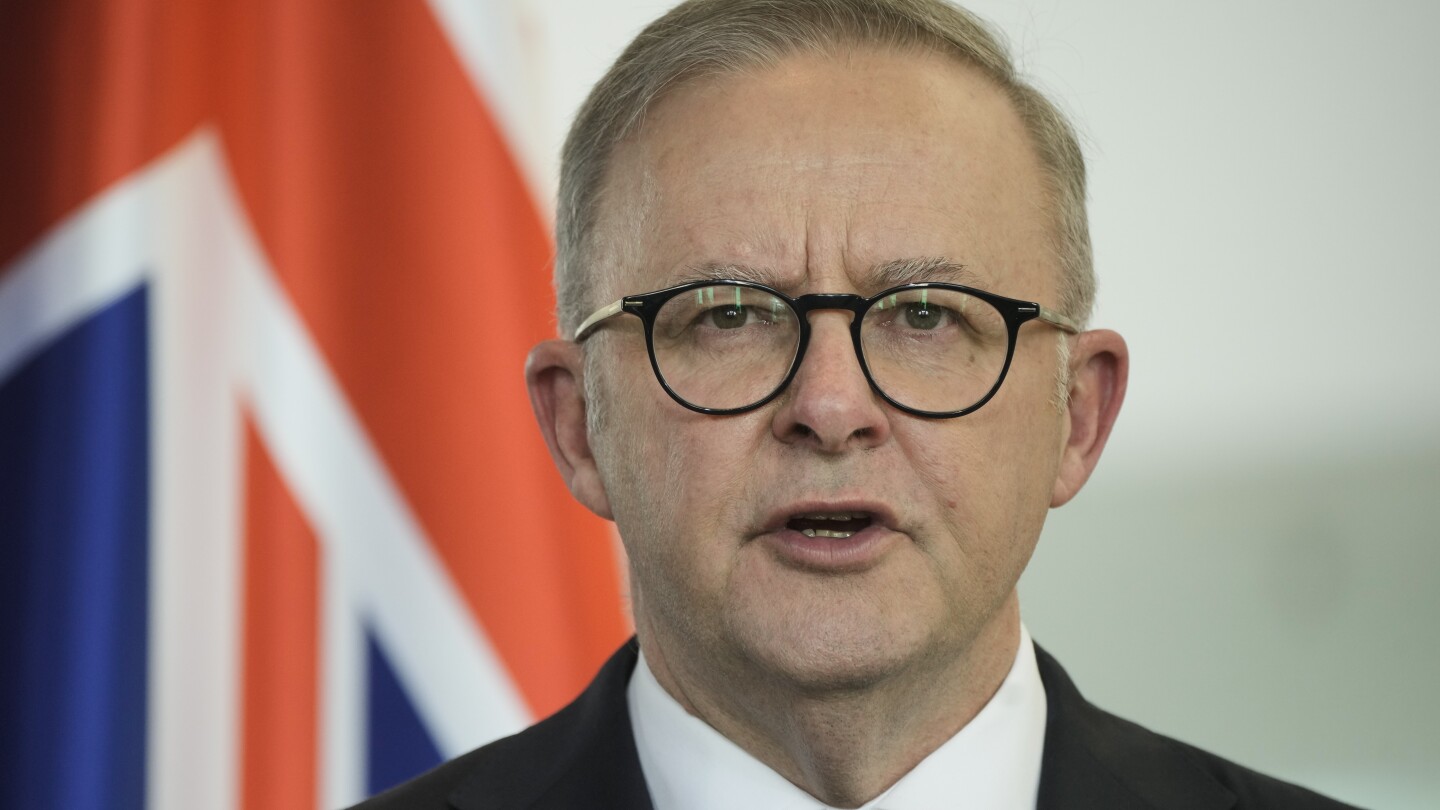CANBERRA, Australia (AP) — Australians will vote on Oct. 14 on a proposed law to create a so-called Indigenous Voice to Parliament in the nation’s first referendum in a generation.
Prime Minister Anthony Albanese on Wednesday announced the referendum date, triggering just over six weeks of intensifying campaigning by both sides of the argument.
The referendum would enshrine in the constitution an Indigenous Voice to Parliament, a collection of advocates aimed at giving the nation’s most disadvantaged ethnic minority more say on government policy.
Albanese urged people to vote “yes” as polls showed more than 80% of Australia’s Indigenous population – Aboriginal and Torres Strait Islander peoples – intended to do so.
“Let’s be very clear about the alternative: because voting ‘no’ leads nowhere. It means nothing changes,” Albanese told 400 Voice supporters in the city of Adelaide.
“Voting ‘no’ closes the door on this opportunity to move forward. I say today, don’t close the door on constitutional recognition, don’t close the door on listening to communities to get better results. Don’t close the door on an idea that came from Aboriginal and Torres Strait Islander people themselves, and don’t close the door on the next generation of Indigenous Australians. Vote ‘yes,’” Albanese added.
Australia has not held a referendum since 1999 and a referendum has not passed since 1977.
No referendum has ever passed without bipartisan support and the major parties remain divided over the Voice.
Proponents argue that giving Indigenous people a say in policies that effect their lives would lead to less disadvantage.
Indigenous Australians account for 3.8% of population and they die around eight years younger than Australia’s wider population.
Proponents say there would be no Indigenous right of veto over government policy and lawmakers would be free to disregard the Voice’s representations.
But opponents argue the courts might interpret the Voice’s constitutional powers in unpredictable ways, creating legal uncertainty. They also say the Voice would be the biggest ever change in Australia’s democracy that would divide the nation along racial lines.
Albanese has long maintained confidence that the referendum would succeed despite opinion polls showing marginal majority support for the Voice has waned in recent months as the public debate has become more heated and divisive.
Voice proponents have complained that social media companies have not done enough to exclude racial abuse from the argument.
Opponents including opposition leader Peter Dutton, Australia’s alternative prime minister, argue the system is stacked in favor of the “yes” vote.
“Just make it a fair process instead of trying to load the system and trying to skew it in favor of the ‘yes’ vote,” Dutton said.
The system requires voters to write “yes” or “no” on their ballot.
But the Australian Electoral Commission, which runs federal elections and referendums, has said it will accept a tick as an affirmative vote, but a cross would be an invalid vote.
Opponents of the Voice want crosses to be added to the “no” tally.
Voice advocates accuse Dutton of attempting to undermine faith in the voting system.
The commission said the ruling that a cross would be open to interpretation and therefore invalid had been unchanged since 1988. The proportion of invalid votes, including those marked with crosses, at the last referendum was only 0.86% of the ballots cast, the commission said.
Most observers agree that the referendum result is unlikely to turn on the tiny proportion of ballots marked with crosses.
The commission has begun distributing 13 million pamphlets to households with arguments penned by lawmakers for and against the Voice. They will be delivered to Australia’s population is 26 million by mid September.
Opponents accuse the government of failing to provide sufficient detail about who will be part of the Voice and how it will work.
“If you don’t know, vote ‘no,’” No campaigners urge uncertain voters.
While some opponents argue the Voice proposal is too radical, others argue that it is not radical enough.
Independent Indigenous Sen. Lidia Thorpe told the National Press Club this month that the Voice would be a “powerless advisory body” that insulted the intelligence of Indigenous Australians.
She urged Albanese to call off the referendum, saying its failure would expose Australia as a racist country.
Albanese agreed that the result of the referendum would effect international perceptions of Australia.
“It’s … about how Australians see ourselves, but also how the world sees Australia,” Albanese said in April.

